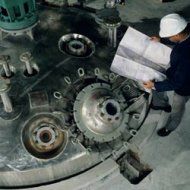 Home to Aerospace/Aviation Engineering, Motorsport/Automotive Engineering, Building Services and Energy Studies
Home to Aerospace/Aviation Engineering, Motorsport/Automotive Engineering, Building Services and Energy Studies
Mechanical engineering covers the design and development of every kind of machines - from supersonic fighter jets and super cars to bicycles to toasters. And they contribute to the design of other products as well – mobile phones, computers and even windows and doors. Many mechanical engineers specialize in areas such as aerospace, automotive/transportation, manufacturing, and air conditioning. Others cross over into other disciplines, working on everything from artificial organs to the expanding field of healthcare. And some use their mechanical engineering degree as preparation for the practice of finance and law.
Mechanical engineers work in the aerospace, automotive, chemical, computer, telecommunication, and power generation industries. Mechanical engineers are also found in any manufacturing industry. In fact, every product or service has probably been touched in some way by a mechanical engineer.
Mechanical Engineering at Brunel is the most established subject at Brunel University and it is one of very few that provides the broad engineering education in mechanical, aerospace, automotive/motorsport engineering, and building service engineering as demanded of modern mechanical engineers. As a result, the students have the choice to choose from a range of degree programmes even after they have completed their first year study.
The subject area has over 700 undergraduates, 300 taught full-time and part-time postgraduate students and 100 postgraduate research students and assistants. All of our undergraduate courses and postgraduate courses are accredited by the professional engineering bodies.







